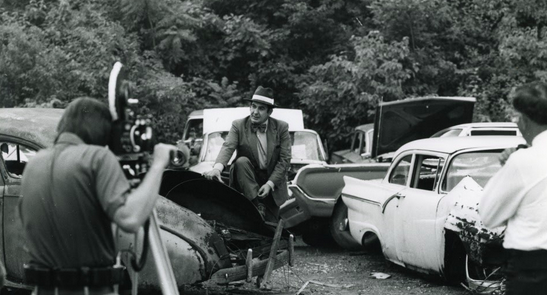For the first time since Robert C. Byrd died in 2010, West Virginia’s senior U.S. Senator is a national household name.
As the most moderate Democrat in a divided Senate, Joe Manchin is one of the most powerful persons in Washington. But while the daily utterance of his name may be new for the casual watcher of national politics, the Manchin name has been embedded in the Mountain State for decades, though that era may be drawing to a close.
Both his age (he’ll be 77 when up for re-election in 2024) and the rightward shift of West Virginia point to this being Manchin’s last term in office. He is not, however, the only Manchin to carry political weight in West Virginia.
The first Manchin to be elected to state office was A. James Manchin, Joe’s uncle. The son and brother of mayors in his native Farmington, A. James first ran for the House of Delegates in 1948 while a junior at West Virginia University but lost his bid for reelection two years later. Manchin’s sponsoring an integration bill sunk his chances for a second term, according to former aide Greg Icenhower, who wrote A. James’s biography.
A. James attended law school but flunked out of both Washington & Lee and Villanova Universities, returning to West Virginia to work as a high school coach and teacher. Even as an educator he continued to meddle and politick, forcing him to move after losing favor with school administrators. Between 1953 and 1960, Manchin taught in Greenbrier, Wetzel, Webster, and Wood Counties. It was in Wood County—where he started the Jackson Junior High wrestling program—that he was able to step back into the political arena.
The 1960 Democratic primary in West Virginia was seen by many as a bellwether for how the American electorate would react to a Catholic presidential candidate.
A primary win in deeply Protestant West Virginia would signal John F. Kennedy’s religious beliefs as a non-issue for the election. The Kennedy campaign had selected Wood County Democratic chairman Bob McDonough as their statewide coordinator, opening an opportunity for then-Vienna resident A. James Manchin to jump on a campaign of national importance.

Manchin traveled the state with the Kennedys and other officials, exuberantly introducing the Massachusetts senator to crowds across West Virginia. His hard work paid off: JFK won the West Virginia primary with more than 60 percent of the vote, and Manchin had a powerful patron in the White House. A. James was selected to run the Farmers’ Home Administration (FmHA) in West Virginia, but not until after he visited Robert Kennedy to secure it after a bureaucrat in the Department of Agriculture called him a “political hack” and refused him the job.
The job was not supposed to be glamorous. Manchin was in charge of rural development in an incredibly underdeveloped state. But A. James found his knack for show business while serving as a hype man for the Kennedy campaign, and added some flourishes into the job. New water lines were opened with parades, spectacles, and speeches.
While holding a relatively obscure office in the federal bureaucracy, Manchin was building name recognition and a reputation for getting things done. Between 1961 and 1969 the FmHA built 79 water systems, 11 sewer systems, 11 recreation facilities, 4 watersheds, and made 35 additional planning grants. When the federal government denied a request from Manchin to build a football field in Wetzel County, he submitted another for a volleyball court and, once approved, built the court to be 100 yards long.

Manchin lost his position as FmHA state director after the election of Richard Nixon. He held on until Nixon’s second year, however, thanks to his personal friendship with Governor Arch Moore, a fellow Republican with ties to the Nixon administration. (Moore’s daughter, Shelley Moore Capito, is currently serving alongside Joe Manchin as West Virginia’s junior senator). In a small state like West Virginia, families of opposing political persuasions remained socially connected to one another. Bipartisanship is practical, not ideological; it’s nearly impossible not to do business, break bread, or watch a ballgame with the other side.
Bipartisanship paid off for Manchin. Though he shuffled from one pointless desk job to the next and lost a campaign for secretary of state, in 1972, Governor Moore appointed him to director of West Virginia’s Rehabilitation Environmental Action Program (REAP).
Much like the position with FmHA, it was not a naturally high-profile position, but Manchin spun it to fit his needs.
Tasked with ridding the state’s countryside of abandoned cars and rusting appliances, A. James tackled the role with a ringmaster’s flair, often making ridiculously alliterative statements. A poster of Manchin and his best-known phrase, “Let us purge our proud peaks of these jumbled jungles of junkery,” hangs in the hallway of his nephew’s Office.
While at REAP, A. James honed his trademark appearance of colorful suits and ties (always matched with a fedora). He embraced jokes likening him to a godfather, later making West Virginians “an offer you can’t refuse” in a campaign poster.
 A. James Manchin poses with junked cars while director of the state’s REAP program. Note his characteristic suit and hat. Via WV & Regional History Center, West Virginia University.
A. James Manchin poses with junked cars while director of the state’s REAP program. Note his characteristic suit and hat. Via WV & Regional History Center, West Virginia University.
In 1976 Manchin once again ran for secretary of state, this time defeating the incumbent Republican by 10 points. He added heaps of Manchin pizazz to the office: A velvet drape was placed over the doorway, and he only emerged to greet visitors after an aide announced his presence. According to former aide Greg Icenhower, the staffer would hold a parchment scroll and announce, in the form of a town crier,
“Hear Ye! Hear Ye! With the authority vested in me by the constitution and the People of West Virginia, I hereby present to you the Honorable A. James Manchin, Secretary of State for all of West Virginia. May God Save Our Precious State!”
Manchin’s success helped make state politics a family business. In 1982, Joe won a seat in the House of Delegates, then A. James’s son Mark was elected to the state senate (along with Joe) in 1988. A proud A. James administered the two Senator Manchins’ oaths of office.

By the 1980s, A. James had gone from secretary of state to state treasurer. Hardly a financial whiz, Manchin left much of the day-to-day running of the treasurer’s office to his staff, such as Associate Treasurer Arnold Margolin, who managed the state’s investments. Manchin focused on retail politics across the state while Margolin ran the state’s $3 billion portfolio in Charleston.
The arrangement went well until 1987, when bond markets fell precipitously.
The state had invested heavily in high-risk securities and lost $279 million. The news of the losses did not go public until early 1989; while much of the blame was placed on Margolin, Manchin was firmly embroiled in the scandal as state treasurer. The House of Delegates—which his party controlled 78-22—passed 17 articles of impeachment against Manchin. He resigned on July 9, 1989, one day before the state senate trial was set to begin.
Noting his nephew’s political instincts even then, A. James joked that he knew his son Mark would vote to acquit, but he was only half-sure about Joe.
Despite A. James’s forced departure, West Virginians continued to elect Manchins to office. Joe became secretary of state, governor, and U.S. Senator. And A. James did not retire quietly. He returned to politics in 1998, winning a seat in the House of Delegates, 50 years after he was first elected to the same body. He remained in the House until his death in 2003, when another nephew, Tim Manchin, was appointed to his seat. Tim served until 2016, leaving Joe as the only Manchin in West Virginia state politics. (Mark served one term in the state senate before losing a bid for state auditor in 1992).
Despite nearly being impeached and leaving office in the wake of scandal, A. James is still remembered fondly in the Mountain State. People remember him for his flamboyantly charming personality and efforts to clean up the junked cars that littered the landscape. For over 50 years he brought laughter to West Virginians—some at him, but most with him.
Subscribe to The Patch, our newsletter, to stay up-to-date with new expatalachians articles and news from around Appalachia.
Nick Musgrave first became fascinated with West Virginia’s history while growing up in Parkersburg. He continues to read, research and write on the Mountain State’s past from its birthplace in Wheeling. For more neat history and some political snark, follow him on Twitter: @NickMusgraveWV.


